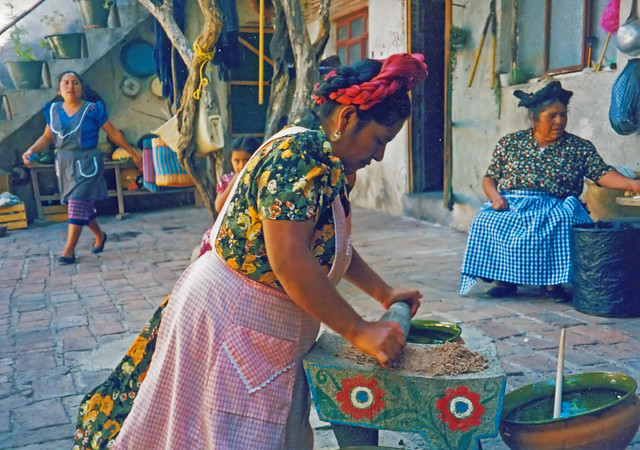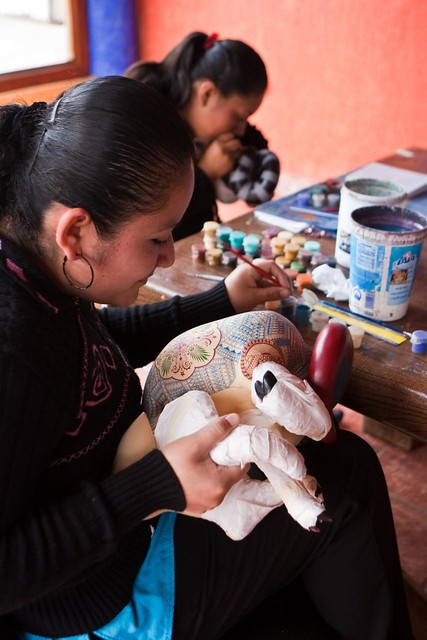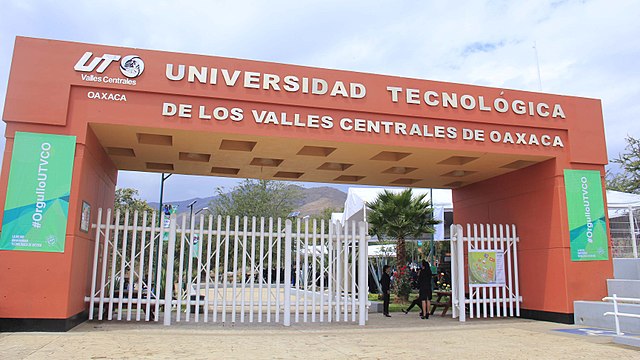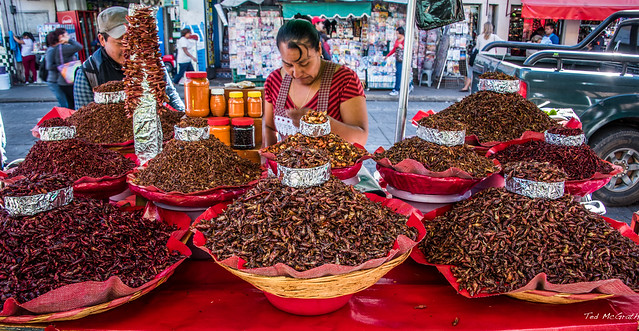For years, the major research interest of Jeffrey H. Cohen, an anthropology professor at the Ohio State University, has been the culture of the Zapotecs in Mexico’s Oaxaca state. But travel restrictions due to the pandemic prevent his normal summer of fieldwork there, so he published last week a very accessible article to bring his subjects and their living conditions to life for a non-specialist audience.

The thrust of his article, based on his many contacts in Mexico, is that the Zapotec villagers are coping with the pandemic by continuing to do what they have always done. They emphasize their remoteness from the Mexican bureaucracy and rely instead on their long-standing traditions of isolation, self-reliance, and cooperation.
Their approach seems to be working. While Mexico as a whole reports a steadily rising rate of COVID-19 infections, the Zapotec villages so far have been spared. However, a Mixtec village on July 17 reported its first case.
The author describes three conditions that foster the Zapotec survival. The first is their spirit of cooperation, which he refers to as “a cornerstone” of their life in Oaxaca. This cooperative lifestyle has grown as a result of their lack of support by the federal government of Mexico. They have learned to not rely on politicians for assistance.

A second condition that favors their survival is that they have worked together since childhood in what are called “tequios,” communal labor brigades formed to complete large projects such as painting a school. On a more informal level, they also work together easily with their friends and families to make minor projects go quickly and to make larger projects seem less overwhelming.
The third factor that helps them survive the pandemic is their long-standing commitment to avoiding the broader Mexican society. They do buy some foods in local stores but they supplement them with their own garden produce. They employ “topiles,” volunteers from their own villages who do policing work. They have a high level of trust in their own communities and a long history of self-rule. In sum, the Zapotec living in rural Oaxaca have little need for contacts with outsiders.

M.C. Nydia Sanchez, a, colleague of the author’s who is a researcher at Oaxaca’s Universidad Tecnológica, identifies another factor. She argues that the Zapotec practice of guelaguetza—gift-giving—also is helping them cope with the pandemic. Their belief in guelaguetza suggests that they share not only food and water but also information and face masks.
But Cohen suggests that the Zapotec do face inherent dangers in their communities. Since the villages are relatively small—less than a couple thousand people—they tend to know each other and socialize a lot. Their habit of frequent socializing makes social distancing difficult. It is hard for them to refrain from their traditional greetings when they meet on the streets.

One of Prof. Cohen’s specialties is the foods of the Zapotec. He writes that the villagers have increased their crops of maiz, the local corn they grow to make tortillas. They are also rediscovering chapulines, grasshoppers gathered from the fields and roasted over fires. They are rich in proteins and are an inexpensive alternative to store-bought meats that are expensive and no longer as easily available in local markets.
One of the strategies the rural Zapotec have adopted to protect themselves has been to erect barricades at the entrances to their villages. They effectively quarantine themselves with chains, wood, and stones. Preventing any outsiders from coming in appears to be a good way of defeating the pandemic. Decisions to erect the barricades have been made by consensus during discussions among the people, not by political leaders.
Cohen concludes his essay on a realistic note. If the virus does get into a Zapotec village, it will probably have severe consequences. The villagers are poor and they lack good running water. They also lack decent health care and the masks that help restrain the spread of the virus. They also lack rural hospitals. In sum: “The Zapotec’s best bet, they know, is still themselves.” A wonderful analysis.